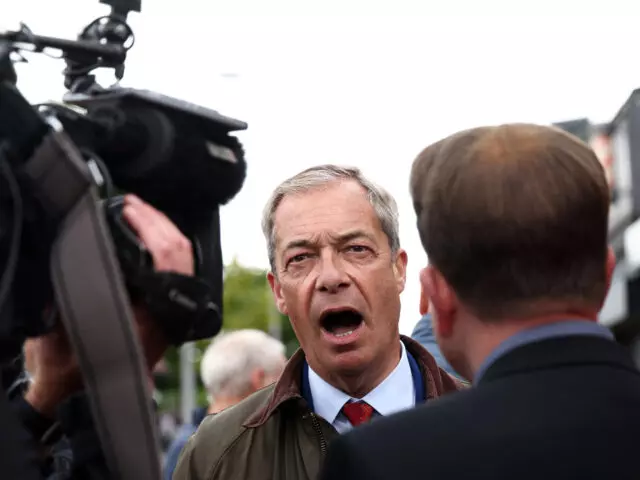Reform UK President and Brexit leader Nigel Farage has issued a warning that the democratic process in Britain is “directly under threat”, following two attacks on him during his campaign trail over the past week. After returning to politics earlier this month, Mr Farage expressed concern about the state of politics in the country, claiming it was worse than when he left it five years ago.
Mr Farage’s comments came after a man hurled cement at him while he toured Barnsley, following another incident last week where a young woman threw a milkshake in his face as he launched his campaign in Clacton. Both alleged attackers have been tied to the far left. He believes that these attacks are intended to stop him from campaigning and are indicative of an attempt to crush democracy.
Farage attributes much of the blame for this deterioration of democratic norms on the education system in Britain, claiming that those using violence against him appear to be recent graduates from university, where he alleges their minds are being “poisoned. Despite these risks, Farage vowed to continue campaigning in public, saying: “I will not surrender to the mob, I will not stop campaigning, this democratic process must continue.
These attacks on Mr Farage are part of a growing trend of political violence in Britain and throughout Europe. This month alone, there have been two knife attacks against right-wing campaigners in Germany, one of which resulted in the death of a police officer who was stabbed in the back of the head by an Afghan migrant in Mannheim. Last week, Denmark’s Prime Minister Mette Frederiksen was assaulted in Copenhagen in the leadup to the European Parliament elections. Slovakian PM Robert Fico narrowly escaped being killed in an assassination attempt during which he was shot multiple times earlier this year.
Concerns over such attacks have been heightened in the UK following the murder of Sir David Amess, a Conservative MP who was stabbed to death, and Labour MP Jo Cox, who was shot and stabbed in 2016.
These incidents have raised concerns over political violence in Britain, with the speaker of the House of Commons, Sir Lindsay Hoyle, breaking legislative protocols during a vote on a ceasefire in the Israeli-Hamas conflict earlier this year over fears of violent reprisals from radical Islamists against parliamentarians.
Despite these incidents, Farage remains committed to continuing his campaign, emphasizing that political differences should be settled verbally, not physically. He points to recent D-Day commemorations as an example of the legacy of free speech that is again under threat and calls for a democratic process to continue despite the risks involved.

